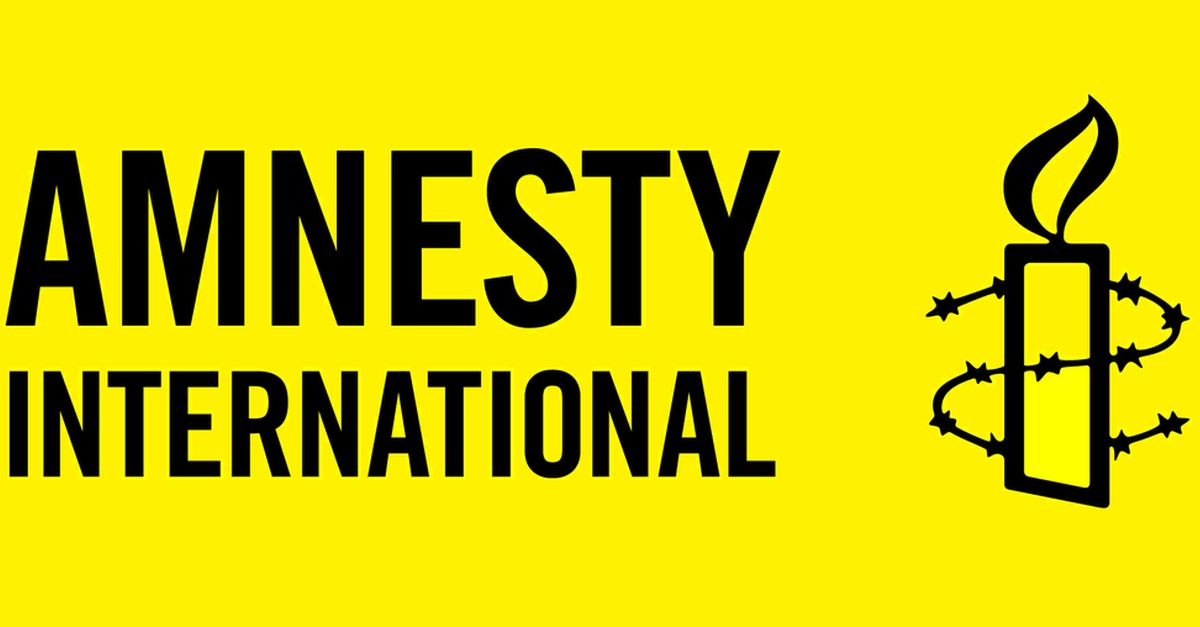- 231 Posts
- 60 Comments

 5·8 hours ago
5·8 hours agoTwo public figures with common interests.
For those who may not know about the AfD:
The AfD and China’s Marriage of Convenience – (May 2024)
Chinese engagement with the AfD dates back at least as far as 2019. Back then, AfD’s lead candidate in the 2024 European elections Maximillian] Krah was once again the politician in the [Chinese Communist Party] CCP’s eyeline. Traveling with his now arrested aide Guo [German citizen Jian Guao was arrested in Germany in April 2024 over alleged espionage for China], Krah was invited on an all-expenses-paid trip to China by Huawei, although Krah disputes that the state-run tech company paid for anything other than a train ticket. This trip came just months after Krah was first elected to the European parliament, raising serious concerns that he had become – or was becoming – a Chinese asset within the EU. Since the trip, Krah has described concerns about Chinese policy in Xinjiang as ‘anti-China propaganda without facts,’ whilst supporting the CCP’s territorial claims to Tibet and Taiwan. In the European parliament, Krah’s voting record would have been looked upon favourably from Beijing, with the MEP shying away from criticism of China and coming to the defense of Huawei.
Krah is not the first AfD politician to have connections with authoritarian regimes, the article says.

 4·1 day ago
4·1 day agoWhat is a good source for this?
Gao Shanwen and and Fu Peng, chief economist at brokerage firm Northeast Securities, have stayed under the radar after challenging official rhetoric painting a rosy picture for China’s growth outlook. Even the South China Morning Post reported about that, citing Northeast Securities that Fu would not be making “any public appearances for the time being,” as public “misrepresentation” has caused “considerable distress”. Now it seems that also Gao will ‘not appear in the public.’ But I wouldn’t expect an official confirmation by the Chinese government for that.

 23·1 day ago
23·1 day agoThe other comment appears to be tankie speech as well, a lot of words in a tonality resembling what is written in the respective echo chambers. I very much doubt they’ve ever seriously read a book about these issues, they are just parroting.

 42·1 day ago
42·1 day agoI meant tiredturtle’s. The other comment appears to be not related to the article at all imho.

 48·1 day ago
48·1 day agoThis is one of these pseudo-intellectual comments pretending knowledge but indeed explains nothing. Unfortunately this is widespread here on Lemmy.

 2·2 days ago
2·2 days agoMedia outlets will have to develop their own audiences over time by using decentralized digital services. It may (seem to) take longer than using centralized services, but it’s the only way to avoid censorship and make independent decisions in their strategy and operations.
Basically, media outlets will grow their own audiences like in the old days, just now they do with the digital help.
This is, as we all know, what the internet was supposed to be in the beginning: a decentralized network.

 4·2 days ago
4·2 days agoI strongly disagree. The case we have here is a good example why. You become too dependent on centralized services. What you need to do is using decentralized tools enabling you to control your own content and processes. If you follow tools like Facebook, Threads, Tiktok, Twitter, etc., you are on the wrong track.
What we see in this story is something like a soft version of Chinese censorship (and censorship will become stronger the more powerful these centralized platforms become).

 8·2 days ago
8·2 days agoAs far as I know, 404 Media is using Threads. If I am right , it would be interesting to know whether they consider stop using it.

 3·2 days ago
3·2 days ago@chemicalwonka@discuss.tchncs.de
Thank you for your informed opinion.

 9·2 days ago
9·2 days agoQuotes from the article (emphasis mine):
“A relatively good period for the Russian economy, which was based on previously accumulated resources, is over,” said Oleg Vyugin, an economist and former top central bank official. “High inflation eats away at all that seemingly short-lived success.”
“If we talk about the middle class, it feels fine now,” said Sergey Dmitrieyev, an IT specialist from Moscow. “Less well-off people are feeling more stressed.”
The agriculture sector is also feeling the squeeze. “The risk of bankruptcies is rising along with the key rate,” said Eduard Zernin, who served as the head of the Russian Union of Grain Exporters. “When farmers need to fund the sowing in the spring, we will see if those risks materialized.”
It will be “a year of belt tightening,” said Sofya Donets, an economist at T-Investments. “Creditors win, and borrowers can hardly imagine how they will live.” […] “In some quarters, growth may be negative next year. For now, our main forecast is still growth by the end of next year, slightly below 1%.”
“The main risks for Russia are problems with payments,” said Alexey Vedev, a former deputy economy minister.
State-controlled pipeline operator Transneft PJSC and Russian Railways JSC sharply cut investment programs partly due to borrowing costs.
Private businesses […] are also trimming expenditures, while United Co. Rusal International PJSC, a top aluminum producer, is considering cutting output by more than 10%, citing the economic situation as one of the reasons.

 11·2 days ago
11·2 days agoThat’s a good article, thanks for sharing.
Many (most?) experts agree that the crisis isn’t yet over (and possibly has not peaked yet), and China is in for long-term trouble. Many Chinese have ploughed their life savings (in the form of pre-payments) into their properties, and are now left alone with homes half-built, with no water or electricity, leaving their buyers with a shattered future and debts that they have to pay for the next 20 or so years. The Chinese government doesn’t provide compensation of any form for the damage done to these buyers.
Real estate was once considered a safe investment in China, but younger Chinese -if and when they can even afford it at all- might reconsider buying a house, and this in turn will be another major obstacle for the market to revive imo.

 2·2 days ago
2·2 days agoFor example, the Institute of International Finance has long been estimating China’s debt-to-GDP ratio as more than 300 percent (and that was even before the pandemic), and so did many other independent analysts (Fidelity is among them if I am not mistaken). You’ll find ample evidence across the web about this.
Official numbers are not available, and even if they are in some subset categories, they often appear to be not very accurate. But the "350%-400% hidden debt to GDP ratio” estimate is widely considered reasonable from several independent analyses.

 12·2 days ago
12·2 days agoThis is about targeting Wikipedia editrors, Israel is here just a pretext.

 2·3 days ago
2·3 days agoWhether or not you are right, the article is about China as it grandstands about Gaza while repressing a Muslim community within its own borders, but hardly anyone seems to notice.

 4·3 days ago
4·3 days agoI guess what is meant here is that
The Israelis keep the Palestinians something of a people apart; Xi seeks to assimilate the Uyghurs into a broader “Chinese” identity by suppressing their language, history, and religious life.
Not that one is less worse than the other (I get your point of genocide), the author is suggesting that there are two different policies: The Israeli policy of segregation versus China’s assimiliation:
… the Communist Party insists that Xinjiang is an integral part of China. Beijing has imposed its political system and Chinese language and culture on the Uyghurs, who are a Central Asian people and speak a language related to Turkish. The community of less than 12 million is also under pressure from an influx of migrants (you could call them “settlers”) from the dominant Han Chinese ethnic group. Official census data from 2020 show that the Han population in Xinjiang expanded by 25 percent over the preceding decade, while the number of Uyghurs grew by only 16 percent.

 16·3 days ago
16·3 days agoWestern countries are supporting genocide by the Chinese government by buying cheap EVs and many other products made by forced labour in Xinjiang. As the article also suggests, for example, politicians are speaking about China’s abuse of the Uyghurs ‘behind closed doors’ while they should rather call out Beijing in public.
Addition: Just stumbled upon this that seems to confirm what I said in this comment (it’s an article originally published in September 2024, republished January 2025). It’s about Australia, but we could replace Australia with almost any Western country, maybe with another product than batteries, but the principle remains:
Several big battery projects in Australia vital for storing renewable energy to meet the nation’s climate goals are highly likely to be using materials sourced through the forced labour of Uyghur and other Turkic ethnic groups in China, […] research has found. […]
Two of the largest companies that supply batteries and lithium cells for batteries—Contemporary Amperex Technology Co. Ltd. (CATL) and EVE—are used in Australian projects in spite of having been reported to be implicated in grave human rights violations, notably forced labour of Uyghur and other Turkic ethnic groups in the manufacturing and processing of raw materials. In a damning 2022 report, the United Nations stated that such violations might constitute crimes against humanity.

 3·4 days ago
3·4 days agohttps://beehaw.org/u/OprahsedCreature@lemmy.ml
China has created a large system of arbitrary detention and enforced disappearance. Approximately one million Uyghurs have been imprisoned in detention centers, for reasons as simple as practicing their religion, having international contacts or communications, or attending a western university […]
Some have reported experiencing torture and sexual violence [in detention camps]. Those who are detained are often unable to communicate with or receive visits from their families. Children whose parents are detained are placed in government-run adoption centers, sometimes far from their homes and families.
The Chinese government uses sophisticated technology to monitor people throughout the country. The goal is to spot any perceived infractions, such as connections with people outside of China or expressions of faith. Being caught can result in detention and/or disappearance. Uyghurs are also being watched closely by their neighbors and state agents in their communities.
Under the “Unite as One Family” program, the Chinese government has stationed an estimated one million Han Chinese citizens in Uyghur households for mandatory homestays to monitor and report on their activities and ensure that they are conforming to Han Chinese rather than Uyghur cultural practices. Uyghur families cannot refuse this in-person monitoring.
The [Chinese] state began imposing harsh penalties for violations of birth limits [in Xinjiang]. It also implemented an aggressive campaign of mass sterilization and intrauterine contraceptive device (IUD) implantation programs. […] Leaked government documents show that violations of birth limits are the most common reason Uyghur women are placed in a detention camp. Women have testified to being sterilized without their consent while in detention. Other women have testified that they were threatened with detention if they refused sterilization or IUD implantation procedures. In such a coercive environment, it is unlikely that any Uyghur woman can be said to have voluntarily consented to these procedures.
China has a long history of imposing forced labor on Uyghurs in Xinjiang. Researchers have documented a network of factories being built within and near detention camps in Xinjiang. Leaked government documents reveal that working in these factories is often a condition for release from the camps. Uyghurs have no real choice but to work in these factories, often for low or no wages. Uyghurs are also being transferred in large groups to work at factories throughout China.
Tihs is just a TINY list of atrocities, and similar things happen in Tibet as well (you find a lot of evidence from reliable source).
[Edit typo.]

 3·6 days ago
3·6 days agoA very small step as it’s already been said, but as many other countries, China is unfortunately far behind regarding its actions to fight climate change.
The Climate Action Tracker -an independent scientific project that tracks government climate action and measures it against the globally agreed Paris Agreement- rates Chinas environmental measures highly insufficient.












The 996 working culture in full blossom.